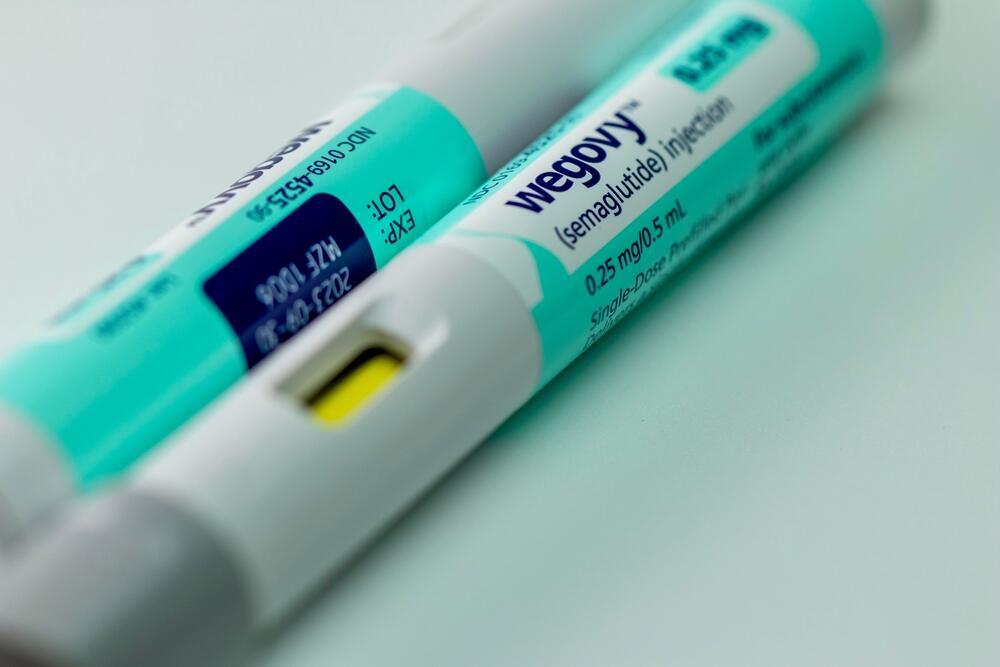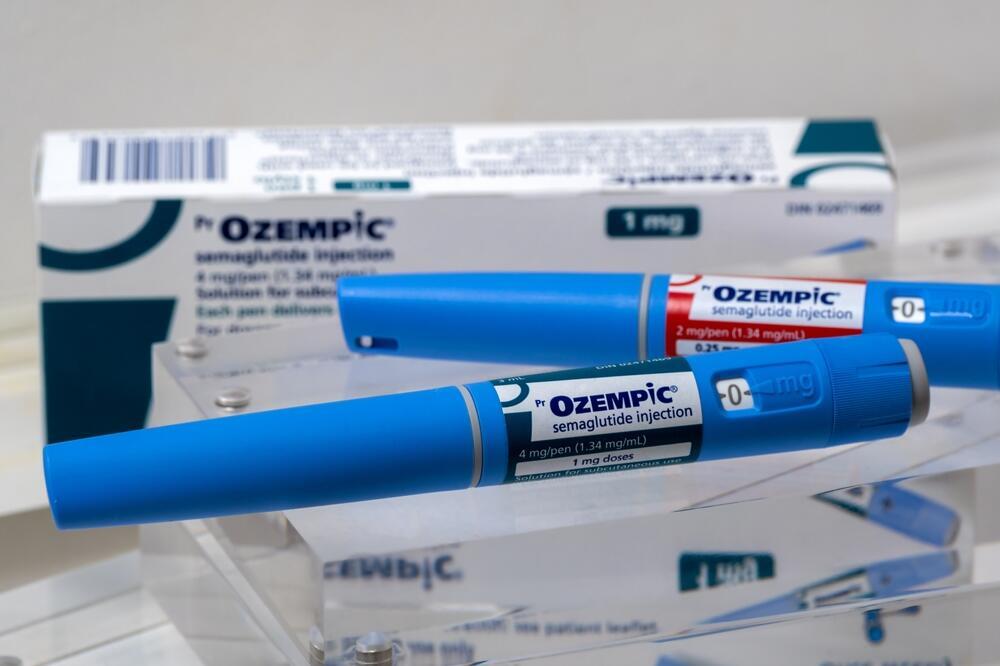Novo Nordisk, the Danish pharmaceutical powerhouse that gave the world the weight loss injection Wegovy and the diabetes treatment Ozempic, is seeing its market value soar. In an intriguing turn of events, just days after the annual International Obesity Day on March 4, Novo Nordisk leapfrogged electric vehicle titan Tesla in terms of market value.
Read more:
The latest data from financial firm FACTSET places Novo Nordisk at 12th place globally, boasting a market value of $604 billion, while Tesla takes the 13th spot with a market cap of "merely" $569 billion.
The news didn't catch Tesla's Elon Musk off guard though. Previously, Novo Nordisk had shared promising results from the first phase of clinical trials for Amycretin - the company's pioneering weight loss pill. This novel approach for weight loss, delivered orally rather than via injections, demonstrated a weight reduction of more than 13% among participants in just 12 weeks.
Compared to Wegovy, which showed a 6% decrease in the same period, this was a significant outcome. This announcement sparked an 8% rally in the company's shares, paving the way for Novo Nordisk to outstrip Tesla.
While Novo Nordisk's ground-breaking weight loss pill still has to navigate through two more trial phases, gain approval from the American Food and Drug Administration (FDA), and launch globally, it will take a few more years.
Meanwhile, the Israeli public is set to benefit from Wegovy, the older sibling of Amycretin, which is poised to launch in the country in the upcoming weeks. Already approved for weight loss in the country, doctors will soon be able to prescribe Wegovy to patients with a BMI of 30 or above, or those with a BMI of 27 and above who also have other risk factors such as high blood pressure, sleep apnea, or high cholesterol.
Wegovy, like its predecessor Ozempic, is an injection containing the active ingredient Semaglutide but at a dosage that's 2.4 times higher. Semaglutide is currently a leading player in the "GLP1 receptor agonists" drug category. GLP1, a human hormone with receptors in various human tissues, including the brain's hunger and fullness center, is known to be deficient in people with obesity. Given that Semaglutide's chemical composition is nearly identical to human GLP1, it amplifies the effects of hunger suppression and satiety enhancement.
The robust dosage of Semaglutide in Wegovy has showcased its efficacy in weight reduction, with the statistics underscoring its effectiveness. Based on findings from the STEP research team, who compared the drug's impact with a placebo, it's estimated that 90% of patients receiving Wegovy will manifest a positive response in the preliminary phase (a minimum of 5% weight loss within 5 months).The projected average weight loss hovers around 20% following 68 weeks of administration. After a two-year consistent treatment regimen, patients on Wegovy are predicted to shed 15.2% of their total weight.
To put this in perspective, Saxenda, the sole injection currently greenlit in Israel for obesity treatment, results in an average weight decrease of just 8%.
Weight reduction wasn't the sole benefit observed in the STEP study (a phased clinical trial preceding FDA approval). Trial participants who received this injection also experienced notable reductions in blood pressure and blood sugar levels. So significant was this effect that the majority of those initially identified as "prediabetic" completely reversed this condition. Consequently, a single medication like Wegovy could potentially tackle multiple health issues that collectively amplify the risk of heart-related incidents, cerebrovascular events, and mortality.
How do you use it?
Wegovy is a weekly self-administered subcutaneous injection. To achieve the standard and recommended dosage of Wegovy, which is notably 2.4 mg per week, an individual has to undergo a four-month period of gradual acclimatization to the drug (in contrast to two months for Ozempic).
The objective of this phased approach is to prevent possible discomforting side effects, which will be elaborated on subsequently. During the initial month of Wegovy treatment, a 0.25 mg injection is utilized, in the second month - a 0.5 mg dose, in the third month - a 1 mg dose, in the fourth month - a 1.7 mg dose, and from the fifth month onwards - a 2.4 mg dose.
Wegovy's side effects bear resemblance to those associated with other GLP1 receptor agonist drugs such as Ozempic and Saxenda. The primary symptoms stem from the digestive system, including nausea, diarrhea or constipation, stomach pain, flatulence, and heartburn. These symptoms are relatively commonplace, typically mild, and tend to lessen gradually, particularly if the patient endures through the four-month acclimation process to the drug.
As per the STEP study findings, a mere 7% of individuals are likely to become so disheartened by gastrointestinal issues that they entirely cease the treatment. Refuting prevalent online rumors, these studies did not record any rise in instances of pancreatitis, depression, or cancer compared to the placebo group.
It's important to note that Ozempic is globally recognized, including in Israel, as a medication used exclusively for managing diabetes, and not for weight loss. Until now, only non-diabetic patients with obesity could acquire it in Israel, and solely from private pharmacies, provided their doctor consented or was convinced to complete a special form, 29G. This intricate process, coupled with the Ozempic supply shortage, has inflicted considerable inconvenience on doctors, patients, and pharmacists, substantially impacting the continuity of treatment.
Conversely, Wegovy, a drug intended for obesity treatment, has already been approved in Israel, eliminating the need for this exhaustive bureaucratic process. Nonetheless, in the initial months following its introduction in Israel, it is anticipated that Wegovy will solely be available in the private market, and primary care physicians in health funds will not have the option to prescribe it to patients who are interested.
It is projected that, at a later stage, the medication will be accessible to patients via the Additional Health Services (supplementary services provided by health funds to their members for an added fee). The drug hasn't been included in the 2024 National List of Health Services, and its inclusion in the coming years remains uncertain. By that time, perhaps Elon Musk will have introduced an innovative model that reclaims its erstwhile prominence.




